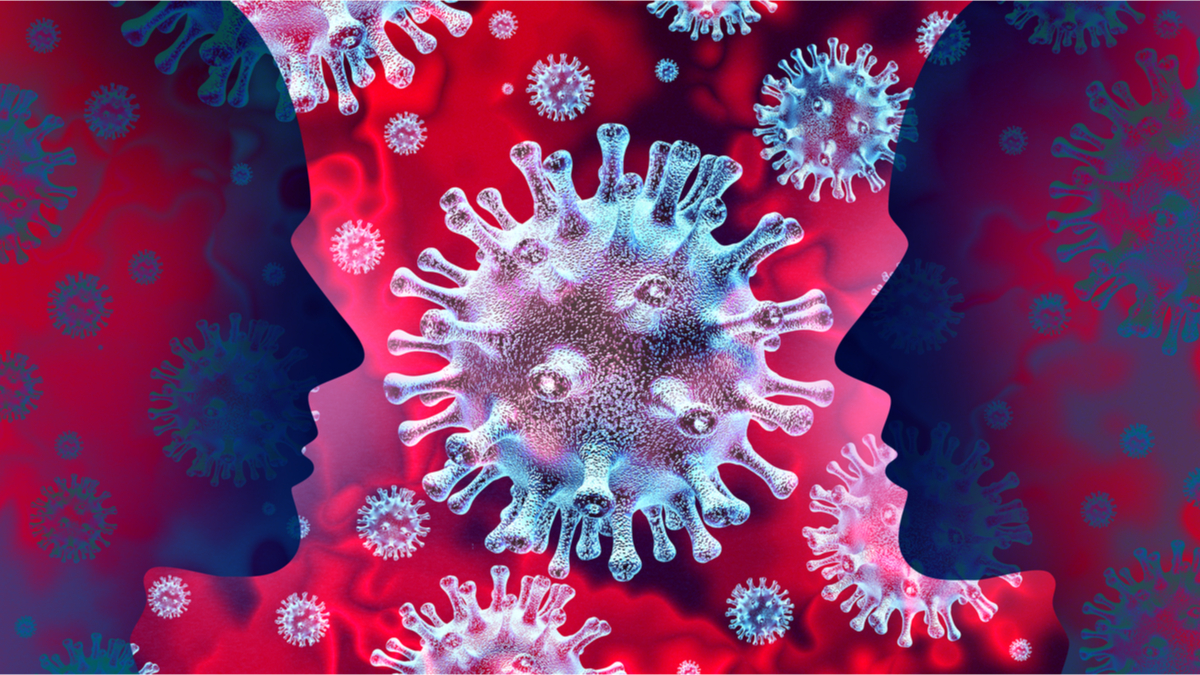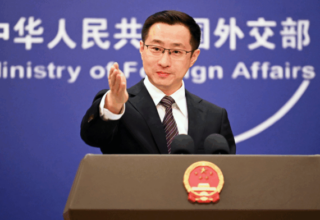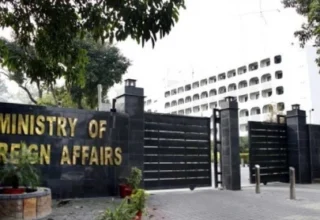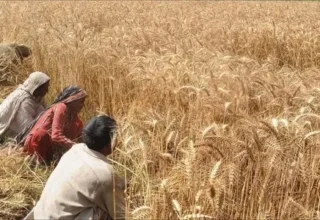
ISLAMABAD – After successfully containing the outbreak of novel Coronavirus (Covid-19), Chinese government is working actively with friendly, neighbouring countries and global and regional partners to help and assist them in battling the demon virus.
The 2019 novel coronavirus (2019-nCoV), officially named as Covid-19 by the WHO, has spread to 74 more countries apart from China alarming public health authorities across the world.

According to official Chinese sources, China has recorded 80,302 confirmed cases of Coronavirus as of 03 March 2020 with 2,946 deaths (including 2 in Hong Kong and 1 in Taiwan). A good omen however is that 47,260 patients have recovered.
Outside of China, over 10,000 confirmed cases while over 120 deaths have been reported. 77 died in Iran, 52 in Italy, 28 in South Korea, 13 in Japan, six in the US, three in France, and one each in the Philippines, Australia, Thailand, and Taiwan.
The World Health Organisation (WHO) has declared the Covid-19 outbreak as a global public health emergency. The US also declared the outbreak as a public health emergency on 1 February, followed by many other countries, as coronavirus numbers continue to rise. The WHO raised the risk assessment for the outbreak to very high on 28 February.
Airports across the world are deploying screening measures to isolate passengers with symptoms related to the disease to contain the spread of the disease. Covid-19 currently has no cure but researchers in China and pharmaceutical companies including Abbvie, Inovio, and Gilead Sciences are working on developing treatments.
China has shown strong progress in its fight against Coronavirus outbreak. China’s prevention and control efforts have produced visible progress, but the Chinese government feels there is no time to relax as the world still feels threatened from the Coronavirus outbreak.
Currently, cases have been reported in many countries, some of which are facing increasingly severe situation. Countries like Iran, Italy, Japan and South Korea and have suffered heavily at the hands of Coronavirus.
Public health emergencies are a common challenge to all countries. The Covid-19 outbreak has laid bare inadequacies in global public health governance and highlighted the urgency to buttress the system.
China has demonstrated its sense of responsibility by curbing the global spread of the virus. Standing at the forefront of the fight, China has fulfilled its responsibility for global public health as well as for its own people. It has taken the most decisive and thorough measures to contain the spread of the virus beyond its borders.
Chinese medical workers and researchers have raced against time to improve diagnostic and therapeutic solutions in an effort to raise the cure rate and lower the case fatality rate. With its quick response, China has bought precious time for the international community to enhance preparedness; with its forceful response, China has served as a strong line of defense against the spread of the epidemic.
Chinese hospitals overflowing with Covid-19 patients a few weeks ago now have empty beds. Trials of experimental drugs are having difficulty enrolling enough eligible patients. And the number of new cases reported each day has plummeted the past few weeks.
These are some of the startling observations in a report released on 28 February from a mission organized by the WHO and the Chinese government that allowed 13 foreigners to join 12 Chinese scientists on a tour of five cities in China to study the state of the Covid-19 epidemic and the effectiveness of the country’s response.
The findings surprised several of the visiting scientists. “I thought there was no way those numbers could be real,” says epidemiologist Tim Eckmanns of the Robert Koch Institute, who was part of the mission.
But the report is unequivocal. “China’s bold approach to contain the rapid spread of this new respiratory pathogen has changed the course of a rapidly escalating and deadly epidemic,” it says. “This decline in Covid-19 cases across China is real.”
The question now is whether the world can take lessons from China’s apparent success—and whether the massive lockdowns and electronic surveillance measures imposed by an authoritarian government would work in other countries.
“When you spend 20, 30 years in this business it’s like, ‘Seriously, you’re going to try and change that with those tactics?’” says Bruce Aylward, a Canadian WHO epidemiologist who led the international team and briefed journalists about its findings in Beijing and Geneva last week. “Hundreds of thousands of people in China did not get Covid-19 because of this aggressive response.”
“This report poses difficult questions for all countries currently considering their response to Covid-19,” says Steven Riley, an epidemiologist at Imperial College London. “The joint mission was highly productive and gave a unique insight into China’s efforts to stem the virus from spread within mainland China and globally,” adds Lawrence Gostin, a global health law scholar at Georgetown University.
UN Secretary-General António Guterres described China’s sacrifice in containing the spread of the novel coronavirus as a great contribution to all mankind. WHO Director-General Dr. Tedros Adhanom Ghebreyesus noted that China’s forceful actions have limited the spread of the virus both domestically and beyond its borders. China is protecting not only its own people, but also the rest of the world.

Spokesperson of Chinese Ministry of Foreign Affairs, Zhao Lijian, says that China is working actively with others at global and regional levels, and has offered assistance to affected countries.
“China’s prevention and control efforts have produced visible progress, but this is no time to relax as we are still in a critical stage. Currently, cases have been reported in many countries, some of which are facing increasingly severe situation,” he said.
“It is of greater importance and urgency for countries to enhance communication and cooperation in the sector of public health security. China has been in communication with other sides. We have provided testing reagents to Pakistan, Japan, among others and shared diagnostic and therapeutic solutions with many countries”.
He says the Red Cross Society of China and many Chinese enterprises have also provided reagents to Iran and African countries.
“A volunteer expert team has gone to Iran. While maintaining the strong response at home, we will continue to work in various means with other sides and offer them assistance to the best of our capabilities. China stands ready to step up cooperation in the health sector with relevant countries, especially high-risk ones, and the WHO. We will fight together for the final victory over the virus all across the world,” says Zhao.
State Councilor Wang Yi has said that guided by the vision of building a community with a shared future for mankind, China will join the world in responding to non-traditional security challenges.
“We live in an era where traditional and non-traditional security issues are intertwined. Non-traditional security issues such as major communicable diseases pose an increasingly serious challenge to mankind as a whole”.
He says China will put into practice its concept of common, comprehensive, cooperative and sustainable security.
“We will promote greater dialogue and communication on non-traditional security matters, help advance relevant international cooperation processes, and work to build up understanding and trust among different parties. These efforts will help enrich the concept and practice of building a community with a shared future for mankind”.








